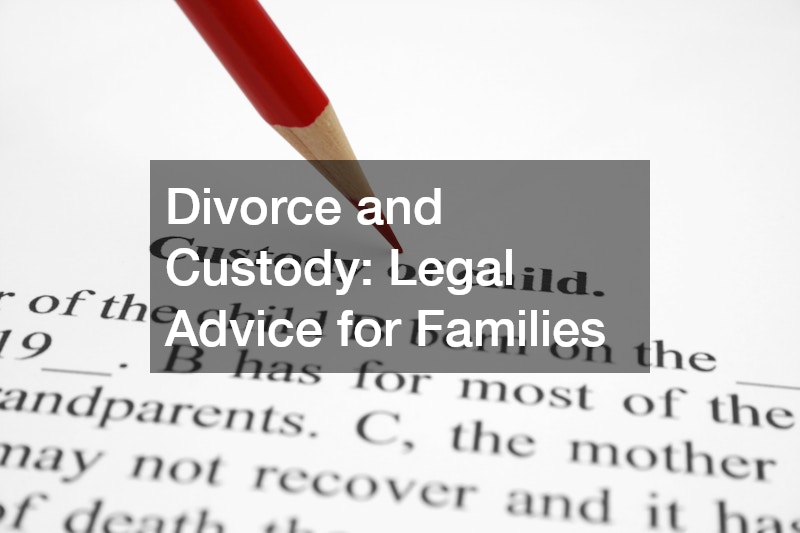Legal matters can be intimidating to the average person. Confusion over the language used in legal documents and the complex procedures of court proceedings can cause feelings of frustration and helplessness. This blog post is intended to illuminate some of the common legal issues that people face in their daily lives. It will make the sometimes mysterious world of law more accessible for the layperson.
1. Facing Criminal Charges: What You Need to Know
In Australia, facing criminal charges can be a very daunting experience. There are serious consequences, including incarceration and fines. A permanent criminal record can also be a major obstacle to a person’s future. Many people struggle to understand the nature of charges, their legal rights and the complexity of court procedures.
In such situations, the experience of a criminal defence lawyer is crucial. These lawyers specialise in defending companies and individuals accused of criminal conduct. Their extensive knowledge of Australian law and negotiation skills can have a significant impact on the outcome of any case.
A criminal lawyer is essential for serious crimes that are classified as indictable offences. Indictable crimes, such as murder, sexual abuse, arson or armed robbery, can carry severe penalties, including long-term prison. Criminal lawyers have the expertise and experience to handle these high-stakes situations, advocating their clients’ rights and working for the best possible outcome.
2. Struggling with Foreclosure? Here’s How to Protect Your Home
In Australia, foreclosure is less common than in some other countries, such as the United States. However, homeowners who default on their mortgage payments can still face similar legal issues. Lenders may try to recover the property in these cases. Australian mortgage laws have specific procedures for dealing with defaults, including seeking a court order to sell the property.
Understanding the process is important. If you are having trouble paying your mortgage, you can negotiate with your lender. In some cases, mortgage modifications or loan restructuring may be possible. A lawyer specialising in mortgage law is a good resource to help homeowners navigate the process and ensure they are aware of all their rights.
3. Bankruptcy: Understanding Your Rights and Options
Bankruptcy is the legal status of individuals or companies who are unable to repay their debts. The Australian Bankruptcy Act gives individuals the opportunity to start anew by paying off their debts. The process can be complex and confusing, so it is important to get the right legal guidance.
In Australia, people who want to declare bankruptcy can apply for voluntary bankruptcy. This is usually administered by a trustee. The trustee will assess the assets and liabilities of the individual and manage the sale assets to pay creditors. You can also choose to negotiate with creditors directly through a Personal Insolvency Agreement.
A registered trustee or bankruptcy lawyer can guide individuals through the legal complexity of bankruptcy proceedings and help them understand their options.
4. Navigating Insurance Claims: How to Tackle the Process
Navigating insurance claims is another struggle that people face. Insurance policies are often confusing and can make it hard to understand the coverage and how to file a claim. When someone suffers a loss covered by their insurance policy, they need to submit a claim.
Claim processes often involve detailed documentation, assessments and negotiation. As an insured, it’s important to understand your rights and responsibilities. Australian law gives individuals the right to contest an insurer’s decision if they feel that a claim has been unfairly denied. They can do this through the Australian Financial Complaints Authority.
A lawyer who specialises in insurance law can help navigate claims processes and protect the rights of claimants for more complex claims.
5. Personal Injury Claims: Securing Compensation After an Accident
Personal injuries and accidents can have a significant impact on a person’s life. Dealing with the legal aftermath is also incredibly difficult. Accidents can occur in the workplace, public places, or even on the road. They often raise complex legal questions, such as the issue of negligence.
Personal injury claims in Australia can be filed under a variety of laws, including the Motor Accident Injury Act 2017 for road accidents and workers’ compensation laws to cover workplace injuries. Individuals can claim compensation in most states and provinces for medical costs, lost wages and pain and suffering.
A personal injury attorney can assist individuals in pursuing compensation claims and ensure that their rights are protected throughout the legal process.
6. The Importance of Estate Planning: What You Should Consider
Many Australians have trouble with estate planning. Estate planning involves managing and distributing an individual’s assets, both during and after death. Estate planning includes more than just a will. It also involves trusts, powers-of-attorney, and superannuation nominees.
If a person does not have a will, the state will decide how assets are distributed, which might not be in accordance with the individual’s wishes. Trusts can be used to manage assets for designated beneficiaries.
Local estate planning lawyers can help you prepare a valid will and understand the implications of death benefits from superannuation. Specialised advice is needed if the estate is complicated, for example, if it involves a family business or large assets.
7. Divorce and Custody: Legal Advice for Families

Divorce and custody disputes can be emotionally charged and complex. Divorce involves the division and determination of property and spousal maintenance (if applicable), as well as, if there are children involved, the resolution and child custody and support questions.
In Australia, the Family Law Act of 1975 governs divorce proceedings. The court will make decisions about child custody based on what is in the best interest of the child. This includes factors like the child’s relationship with both parents, their ability to meet the child’s needs and a history of violence within the family. Shared custody is often the preferred arrangement, but every case is different.
Divorce lawyers and family lawyers who specialise in child custody and other legal issues can provide support and guidance during a time of great difficulty.
In Closing
Navigating the complexities of law can often be a daunting task, particularly when dealing with life-altering situations like bankruptcy, insurance claims, personal injury cases, estate planning, and divorce. Such circumstances are often accompanied by emotional strain, which can exacerbate the associated legal challenges. However, specialised legal professionals can help alleviate these struggles, guiding individuals through the legal maze in Australia.
